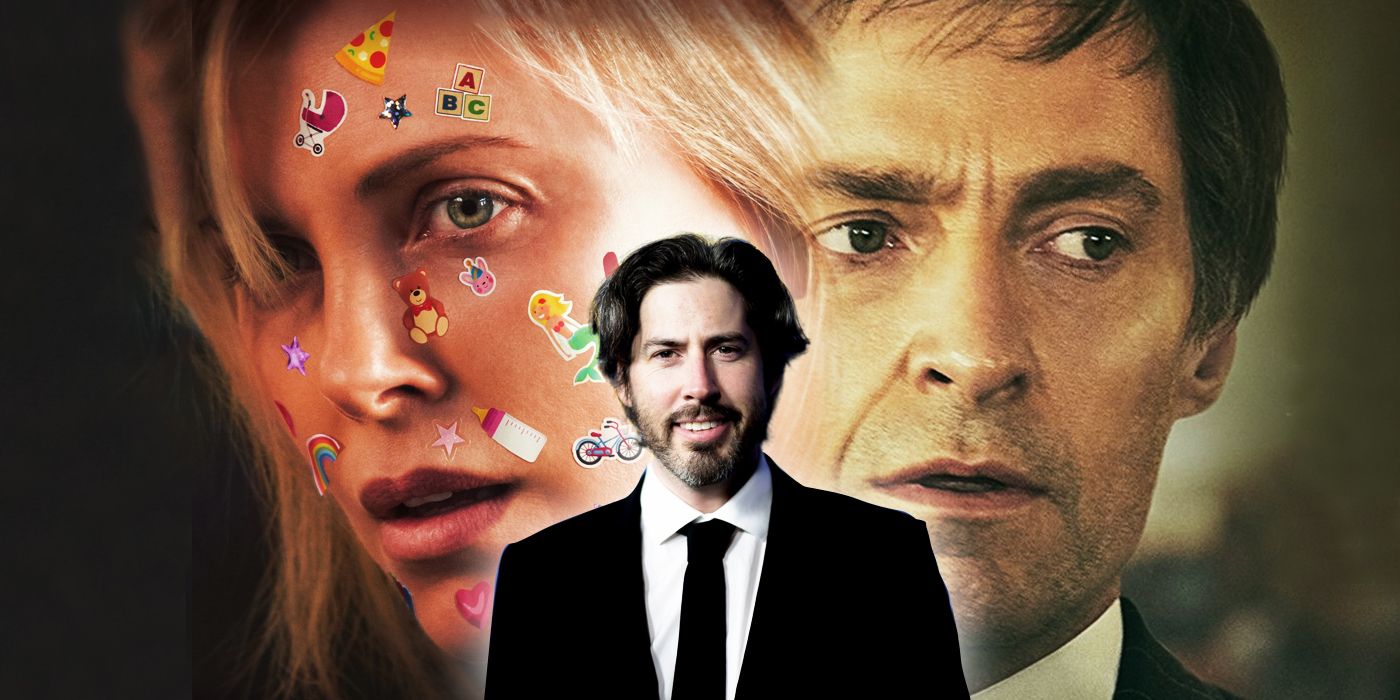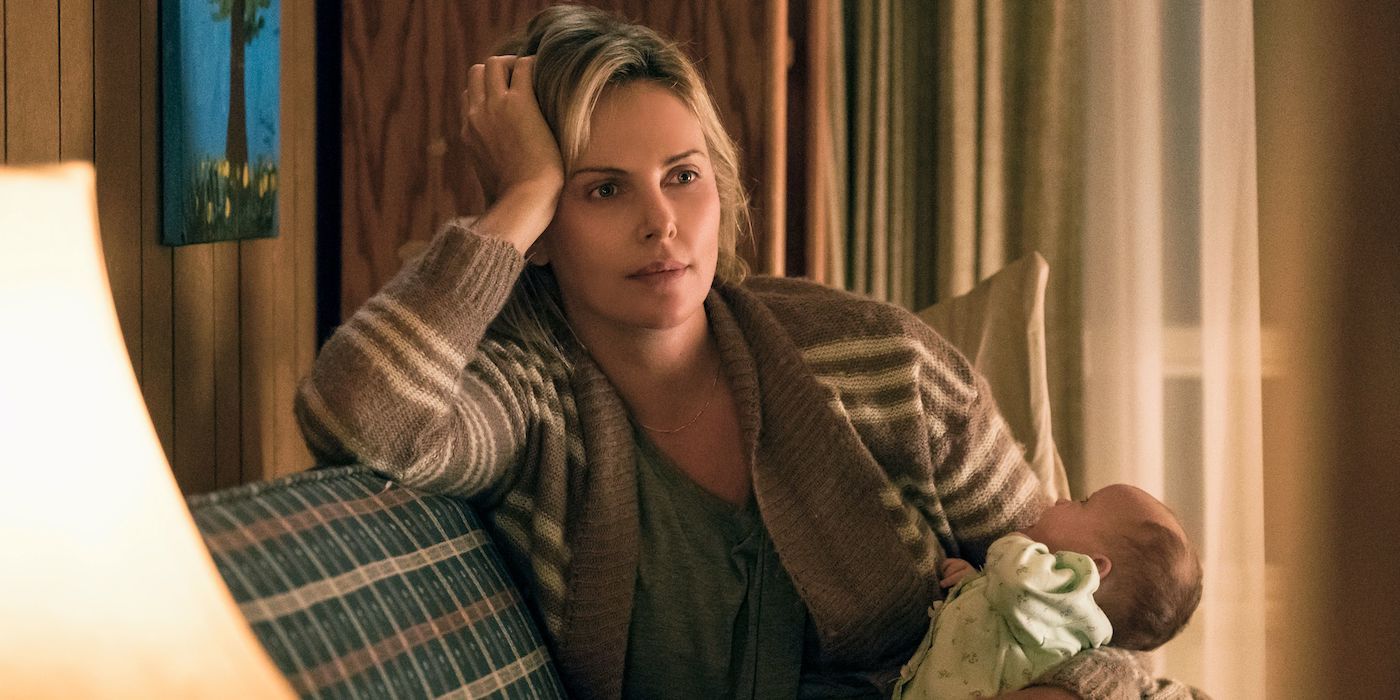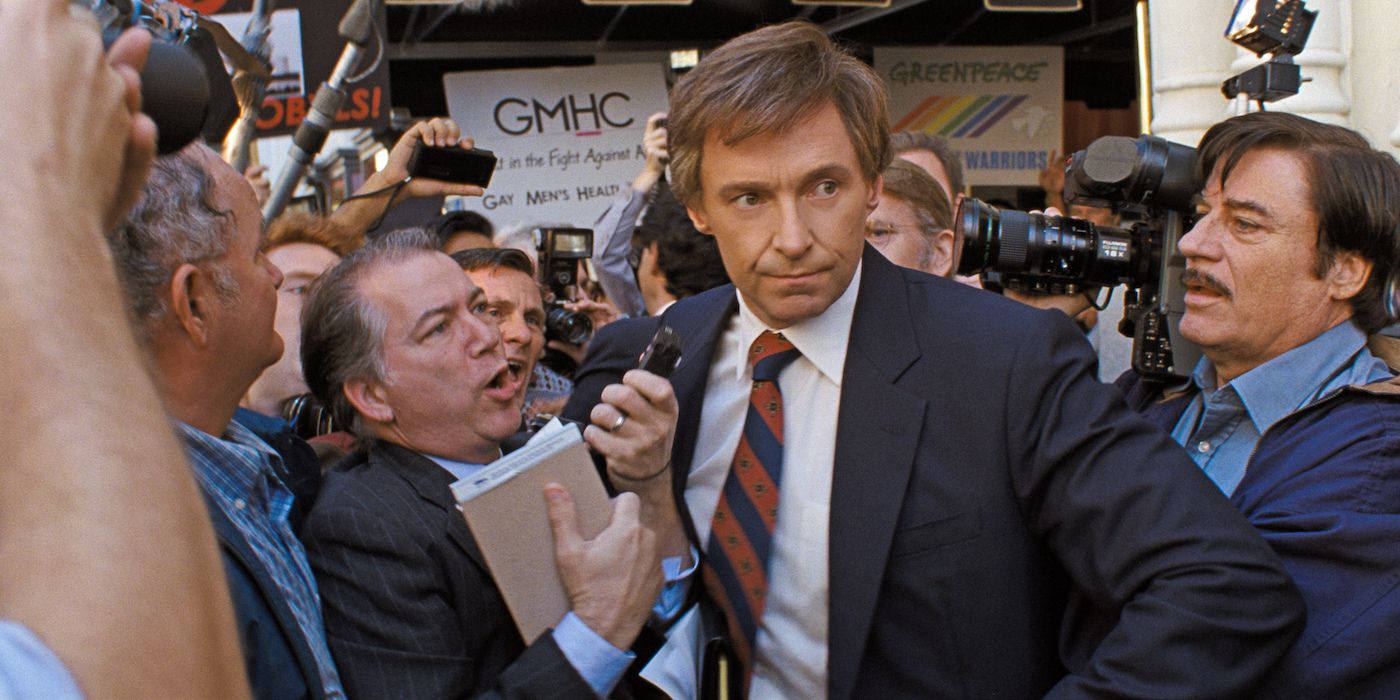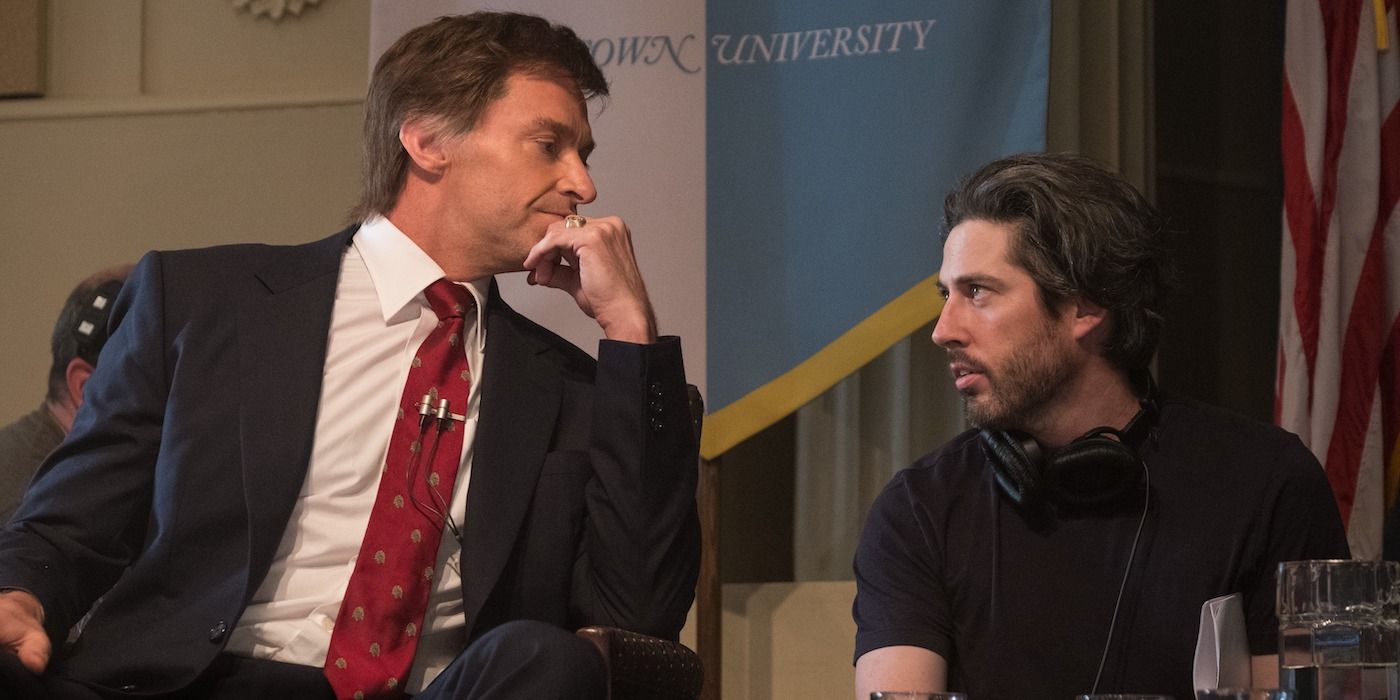Editor's note: The following contains spoilers for Tully.The early word-of-mouth on Ghostbusters: Afterlife looks to be largely enthusiastic, and the film’s director Jason Reitman has had a true rollercoaster ride of a career. While being the son of original Ghostbusters director Ivan Reitman undoubtedly facilitated his success, the younger Reitman proved he wasn’t simply coasting on his father’s name. Directing Thank You for Smoking, Juno, Up in the Air, and Young Adult in succession, Reitman showed he could tell intimate stories spotlighting multiple perspectives. While each of his first four features has an element of dark comedy, it's distinct from the gleeful wackiness his father epitomized; the younger Reitman captured an authentic human experience.
Yet Reitman’s run of hits hit a roadblock in 2014, when his two released films Labor Day and Men, Women, and Children fell flat. Labor Day was shackled by clichés and too sincere to acknowledge its melodrama; Men, Women, and Children was a surface-level exploration of the consequences of internet usage that didn’t take time to personalize any of its interconnected narrative arcs. Reitman’s name was out of the awards conversation for the first time, and both films were box office disappointments; Labor Day underperformed with Reitman himself calling out the poor marketing, and Men, Women, and Children had one of the worst opening weekends of all-time.
Reitman’s name was no longer a surefire indicator of quality, but he followed these disappointments with two underrated films released in 2018. The parenting dramedy Tully reunited Reitman with his Young Adult star Charlize Theron, but despite being marketed as counterprogramming, it became lost within the summer movie season. Political thriller The Front Runner tackled the timely true story of Gary Hart’s (Hugh Jackman) affair and botched presidential campaign, but was met with mixed reviews at its festival debut and failed to generate any major awards nominations.
Reitman’s 2014 films were simply bad movies, but both Tully and The Front Runner were overshadowed by overblown controversies and saddled with unfair expectations based on their release rollouts. Tully was a thoughtful consideration of the tolls of parenting and features one of Theron’s strongest performances, and The Front Runner was a more three-dimensional examination of the changing relationship between media and politics than Reitman was given credit for. Bad timing buried two excellent films that were unfortunately not judged on their own merits.
Tully tried to build early word of mouth with a Sundance debut ahead of its May release. Reitman’s previous films had all launched in the fall festival circuits, but a summer release date left Tully largely absent from the awards conversation. Despite the strong reviews for previous Oscar winners Theron and screenwriter Diablo Cody, and the remarkable supporting turns from Mackenzie Davis and Ron Livingston, it failed to receive any major nominations other than Theron’s Golden Globe nomination.
Tully hit wide release during the first week of May as counterprogramming to blockbusters like Avengers: Infinity War, Deadpool 2, and Solo: A Star Wars Story. While serving alternate audiences during a key release weekend is a good idea in theory, Infinity War was dominating screens and leaving theaters packed. A low-key character drama as emotionally unflinching as Tully got lost in the shuffle, and it didn’t take the summer indie route of building word-of-mouth through an initial limited release that gradually expanded.
Tully ends with a controversial plot twist that dominated the conversation surrounding the film. The third act reveals that the titular nanny (Davis) that had such a positive impact on the overworked Marlo (Theron) and her children is a manifestation of Marlo’s youthful idealism into a Tyler Durden-esque alternate personality. The depiction of Marlo’s coping mechanism drew criticism for its sensitivity to mental health issues.
Both Theron and Cody defended the depiction as being intentionally uncomfortable in subsequent press. But the reveal itself isn’t intentionally inflammatory, nor does it stigmatize Marlo, as it comes at a key emotional moment in which Marlo and her husband begin to understand each other better. The controversy, unfortunately, dominated the film’s good intentions.
The Front Runner debuted at the Telluride Film Festival in August; before Tully’s unsuccessful summer release, Reitman’s previous films had all launched in the fall festival circuits. A true story about a famous political figure could be seen as prime awards season material, and there was an argument to be made that both Reitman and Jackman were overdue for wins, adding additional expectations to the film. Telluride’s 2018 lineup also included award season players such as Roma, First Man, Cold War, The Favourite, and Can You Ever Forgive Me?, which may have dominated buzz and made it harder for Reitman’s more divisive film to stand out.
Enthusiasm was also low because of its proximity to the 2018 election in November. The actual election was stressful enough, and it wasn’t a good time to remind audiences about the dehumanization of political campaigns. The entire marketing campaign was built around the connection; it was the first film to ever release on Election Day, which trailers highlighted. Again, while it may have seemed like a good way to capture attention, it meant the conversation surrounding Reitman’s message and his depiction of political players would be intensified.
Reitman’s sympathy for flawed characters is one of his trademarks, and despite its loaded subject matter, The Front Runner is fairly balanced in giving each of the players a voice. Jackman doesn’t depict Gary Hart as a complete victim or hypocrite, and Jackman’s befuddlement makes the performance more interesting. Reitman also does a nice job showing the changing media landscape; not every outlet covers Hart’s affair in the same way, and there’s time paid to debating the ethics. The only one who comes out relatively unscathed is Hart’s wife Lee (Vera Farmiga), and Reitman rightfully gives a voice to someone who rarely got the chance to speak honestly.
The Front Runner is more interested in exploring the ramifications of the unprecedented election cycle than it is demonizing any one person, and the film doesn’t pick a side or offer an easier solution. There was a justified sensitivity to approaching the story; having an actual President in office routinely vilifying the press sucks the air out of nuanced depiction, particularly for a film that’s very old-fashioned with its Robert Altman-esque cinéma vérité style. Reitman was tackling themes of accountability that were more relevant than ever, but approaching them through a nostalgic style may have been seen as a misguided choice that presented the story in a vacuum.
Reitman has faced strange expectations his entire career, and discussions of nepotism certainly won’t go away when he’s releasing a legacyquel to his father’s most famous film. However, in the case of Tully and The Front Runner, his films were buried because of other reasons. This truly great pair of films deserve to be reconsidered as worthy additions to a talented director’s filmography.





